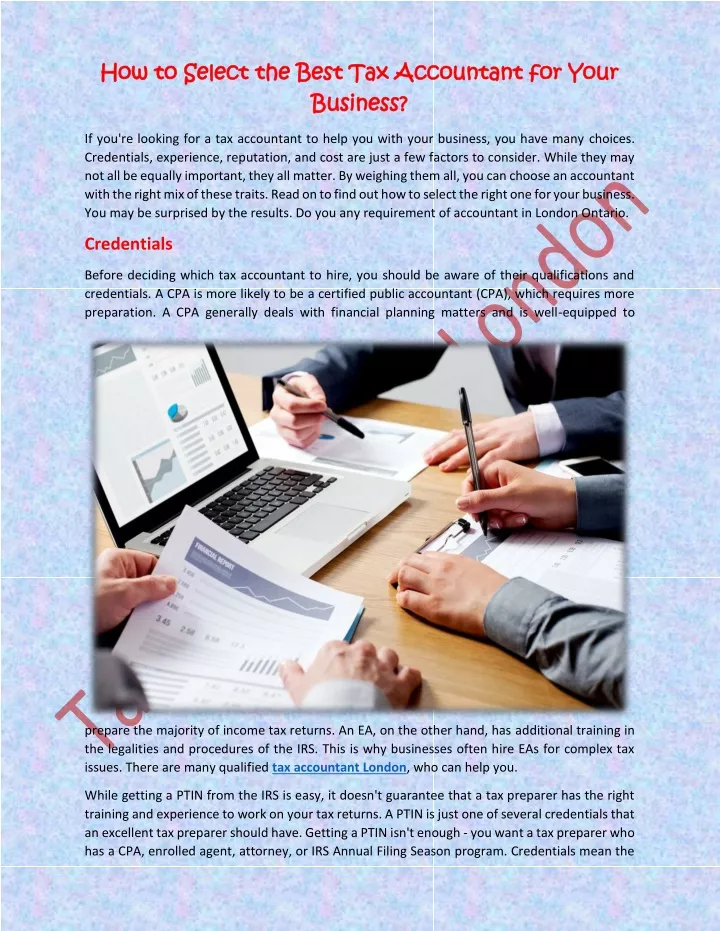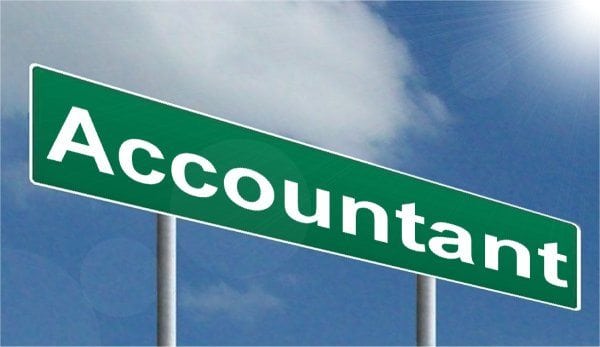How To Select An Accountant For Your Business

In the intricate dance of running a business, financial stability is the stage upon which success is built. The accountant, often unseen, is the stage manager, orchestrating financial records, ensuring compliance, and providing crucial insights for strategic decision-making. Selecting the right accountant is therefore not just a procedural task; it's a pivotal investment in the long-term health and prosperity of your enterprise.
This article navigates the crucial steps involved in choosing an accountant who can be a true asset to your business. It details the process from defining your specific needs and exploring different types of accounting professionals to conducting thorough interviews and verifying credentials. It also offers insights on maintaining a strong working relationship with your chosen accountant, ensuring a fruitful and financially sound future for your business.
Defining Your Needs: The Foundation of Your Search
Before embarking on the search, take time to carefully assess your business's accounting requirements. Are you a startup needing assistance with initial setup and cash flow management? Or an established company requiring complex tax planning and auditing services?
Identifying your specific needs will significantly narrow down your options and ensure you find an accountant with the right expertise.
Consider Your Business Type and Size
Different business structures have varying accounting needs. A sole proprietorship's requirements differ drastically from those of a corporation. Consider the size of your business as well. A small business may only need assistance with basic bookkeeping and tax preparation, while a larger enterprise may need a full-fledged accounting team.
Understanding these nuances will help you target accountants with relevant experience.
Specialized Industry Knowledge
Certain industries, such as healthcare or construction, have unique accounting regulations and practices. An accountant with experience in your specific industry will be better equipped to handle these complexities.
Exploring Your Options: Types of Accounting Professionals
The accounting world offers a variety of professionals, each with different qualifications and specializations. Understanding the distinctions between them is essential for making an informed decision.
Certified Public Accountants (CPAs)
CPAs are licensed professionals who have met stringent education and examination requirements. They are authorized to perform audits, prepare tax returns, and provide a wide range of accounting services. Seeking a CPA often signals a commitment to professional standards and expertise.
Enrolled Agents (EAs)
Enrolled Agents are federally licensed tax practitioners authorized to represent taxpayers before the IRS. While they specialize in tax matters, they may not possess the broad accounting knowledge of a CPA. For businesses primarily seeking tax expertise, an EA can be a valuable asset.
Bookkeepers
Bookkeepers primarily focus on recording financial transactions, reconciling bank statements, and maintaining accurate records. While they are essential for day-to-day accounting tasks, they typically do not provide the same level of strategic financial advice as CPAs or EAs. They are the front line of defense in keeping your financial records intact and organized.
The Interview Process: Uncovering the Right Fit
Once you've identified potential candidates, conduct thorough interviews to assess their qualifications, experience, and communication skills. This is your chance to delve deeper and determine if they are truly the right fit for your business.
Asking the Right Questions
Prepare a list of questions that address your specific needs and concerns. Inquire about their experience with businesses of your size and industry. Ask about their familiarity with relevant accounting software and their approach to tax planning. Don't hesitate to ask them what their process is for keeping up to date on the latest accounting and tax regulations.
Checking References
Always request and check references from previous clients. Talking to other business owners who have worked with the accountant can provide valuable insights into their performance and reliability. A positive reference is a strong indicator of a trustworthy and capable professional.
Assessing Communication Skills
Effective communication is crucial for a successful working relationship. An accountant should be able to clearly explain complex financial information in a way that you understand. Pay attention to their communication style during the interview process. Do they listen attentively and respond thoughtfully to your questions?
Verifying Credentials and Licensing
Before making a final decision, verify the accountant's credentials and licensing status. Ensure that they are in good standing with the relevant regulatory bodies.
Checking with State Boards of Accountancy
State boards of accountancy maintain records of licensed CPAs and can confirm their credentials. This step ensures you are working with a qualified professional who adheres to ethical standards.
Looking for Disciplinary Actions
Investigate whether the accountant has been subject to any disciplinary actions or complaints. This information can be a red flag and should be carefully considered.
Building a Strong Working Relationship
Selecting an accountant is just the first step. To maximize the value of their services, cultivate a strong and collaborative working relationship.
Open Communication
Maintain open and frequent communication with your accountant. Share relevant information about your business operations and goals. Ask questions and seek clarification on any financial matters you don't understand. Honest and transparent communication ensures that your accountant has a complete picture of your business's financial health.
Regular Reviews and Check-ins
Schedule regular reviews of your financial statements and performance. Discuss any potential issues or opportunities with your accountant. Proactive communication can prevent problems before they arise and help you make informed business decisions.
Choosing the right accountant is a significant decision that can profoundly impact your business's financial future. By carefully defining your needs, exploring your options, conducting thorough interviews, and verifying credentials, you can find a trusted advisor who will help you navigate the complex world of finance and achieve your business goals. Remember, a good accountant is more than just a number cruncher; they are a strategic partner in your success.


















